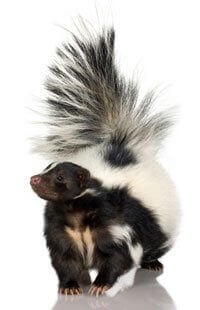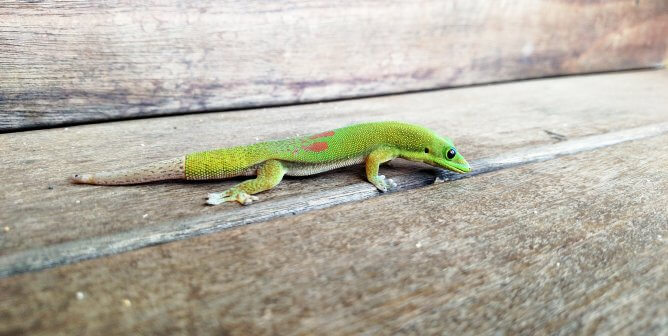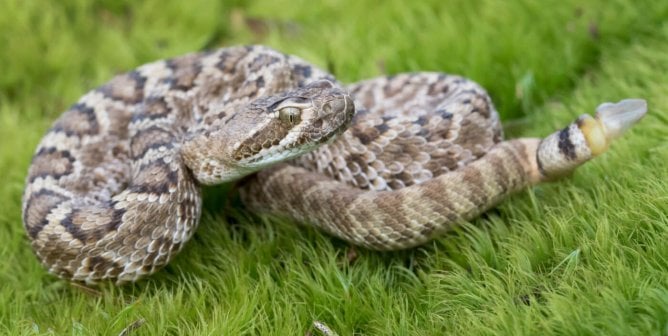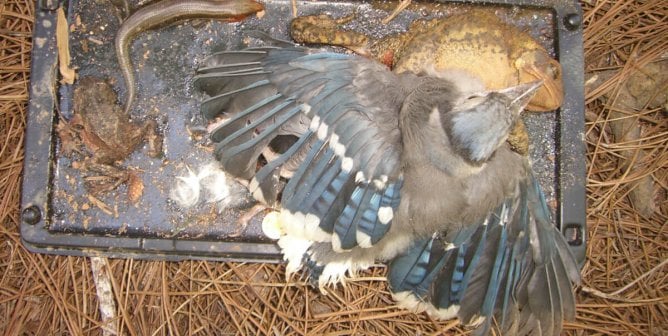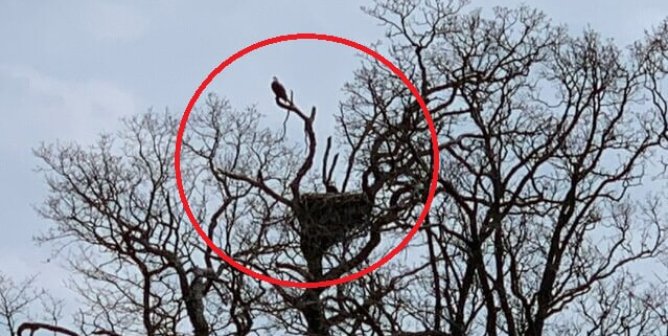Living in Harmony With Skunks
A skunk is one of the most peace-loving, non-aggressive animals you could ever meet. Skunks are also extremely nearsighted. They will only “shoot” their defensive spray when frightened, and they give you plenty of time to back off by stamping their front feet as a warning. Only as a last resort will a skunk turn and fire the foul-smelling spray from his or her anal glands. This spray is the only defense that skunks have. They can bite, but that isn’t much of a defense against a large predator.
Skunks do most of their foraging at night. However, it is not uncommon for healthy skunks to appear during the day.
If you see an injured skunk, contact a state-licensed wildlife rehabilitator. (Keep the name and telephone number of a rehabilitator in your wallet or programmed into your phone. Your local humane society, animal control department, or parks department can usually provide this information.)
A skunk who appears ill is far more likely to have distemper than rabies, and distemper is not contagious to humans. If you see a skunk who is obviously sick, do not call a “nuisance wildlife” trapper or “pest control” service. (They usually drown skunks to avoid getting sprayed!) Call your local animal control department or humane society and ask the officers if, should they find it necessary to euthanize the skunk, they will use an injection of sodium pentobarbital so that the death will be painless. If they do not use this method, please ask your local animal control department or humane society representatives if they can pick up the animal or if they can recommend a facility to which the animal can be transported. Please also notify PETA’s Cruelty Investigations Department (CID) immediately so that we can contact the agency and offer to work with it to develop a protocol for euthanizing animals via lethal injections. Do not leave the scene or lose sight of the skunk until the animal has received help.
To keep skunks from frequenting your property, target the parts of your property that attract them.
A skunk’s diet consists mainly of insects. Skunks—along with raccoons, squirrels, moles, starlings, grackles, and crows—dig holes in lawns and gardens in search of insect grubs. This digging leaves small, cone-shaped holes and patches of upturned earth. Many gardeners welcome the services of skunks and other grub-eaters, since it saves them from having to kill the grubs themselves.
You can also prevent skunks and other animals from frequenting your property by keeping garbage containers tightly sealed at all times. Discourage the feeding of wildlife in your area. Such artificial food sources attract all kinds of wildlife, not just the ones who are targeted.
Skunks look for places to make dens, so seal off sheds and openings under porches and buildings. Like raccoons, they make dens when they are preparing to have babies. If skunks have already taken up residence, tolerance is the first and best approach. Once the young are big enough, the family will vacate the area. However, if absolutely necessary, the family can be evicted easily by making the area inhospitable by putting lights, radios, and ammonia-soaked clothes inside the den area. This will prompt “Mom” to move her brood to another location. Or, if (and only if) there are no babies in the den, you can install a one-way door. For information on sales of one-way doors and good illustrations of how they work, go to tomahawklivetrap.com.
Once the skunks have been evicted, you should not attempt to trap and remove skunks from the property. Trapping and removing them will do nothing for long-term control, as the newly vacant niche will quickly be filled by skunks and other animals from surrounding areas. Trapping can also be cruel because when adults are removed, young and vulnerable family members are left to starve. Relocating skunks—even to wild or wooded areas—is illegal in most states and will likely result in their death because they will have trouble finding adequate food, water, and shelter and won’t have a natural immunity to foreign parasites and diseases.
For more information about skunks, please download the Fund for Animals factsheet on skunks.
